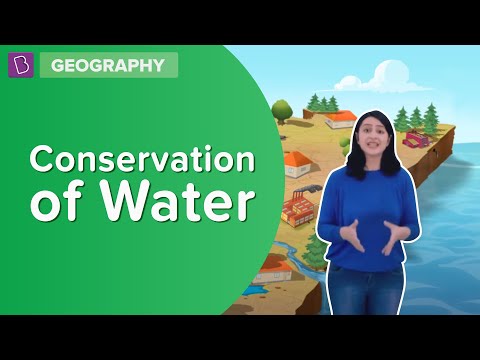Table of Contents
- Introduction
- Interesting Facts About Water
- Why Is Water Important?
- Water conservation
- Dams
- Water Harvesting
Introduction
Water is one of the most important resources gifted to us after the air. It forms the basis of life for every living organism on earth. Life without water is unimaginable and impossible. This is the sole reason why finding traces or signs of water is an important criterion of planetary exploration. Life on earth probably would not have even begun if not for water.
Interesting Facts About Water
- World water day is celebrated on 22nd March every year
- Earth consists of 78% water, and the rest constitutes land
- 60% of your body is made up of water on average, Jellyfish have over 95%
- 97% of the water on earth is salt water
- 0.01% of the water available is fresh water(drinkable/potable)
- More than 69% of freshwater is trapped in glaciers
Why Is Water Important?
Scientists theorize that life originated from water, hence nearly all organisms need water to exist and survive. Water also forms the base for all living organisms. As much water is lost from our bodies, the same or more needs to be replenished.
- Water is used in everyday life, for drinking, farming, construction, agriculture, industries, hospitals, and water cycle to name a few
- Water boosts metabolism, helps in blood circulation
- Helps create saliva and provides oxygen to cells of the body
- It houses different aquatic creatures
- Used as a means of transportation
After understanding how important water is and how there is a scarcity of fresh water in the world, let us look at some of the ways in which we can sensibly use water and conserve it as much as possible.
Also Read: Disappearing Act of Water
Water conservation
Water can be conserved and used for various purposes. Dams and water harvesting help towards fulfilling this criterion.
For More Information On the Conservation Of Water, Watch The Below Video:

Dams
How are lakes and reservoirs created? How is electricity generated?
Dams are the answers to these questions. Dams are huge barriers created along water bodies to restrict and confine the flow of water. This confinement helps generate electricity because the water is stored at a height creating potential energy, the water confined is also used for irrigation and agricultural purposes etc.
Significance of Dams
- One of the first and foremost uses of dams has to be the generation of hydroelectric power which produces electricity.
- Helps in controlling a flood, as the rate at which water flows can be caught and controlled.
- Dams store water to be used by farmers for irrigation purposes.
- Serves the purpose of drinking to nearby people as water stored is fresh water and not salt water.
- Water stored in a dam is called a reservoir. This water can be used for various water-related activities.
While there are a lot of benefits, dams negatively affect social, economic and environmental factors. For instance:
- Dams can displace local tribes without providing necessary compensation and shelter
- Dams can be a financial drain on the public
- Results in loss of biological diversity and deforestation
Water Harvesting
Another method of conserving water is through water harvesting. Water harvesting is the practice of collecting rainwater or runoff/excess water for various household purposes. Care is taken to make sure that the water is pollutant-free at any given time; pollutants could be from the air, water, soil etc. Water for this can be obtained from various resources such as excess water from rooftops, seasonal flood streams, watershed management etc.
Uses of Harvesting Water
Water generally in these methods is not held up on the surface but beneath the ground.
- Water can be purified and used for drinking purposes
- Used for daily household chores
- Water stored is also supplied to large-scale industries
- Serves as a secondary resource of water for animals and plants
- Helps increase biomass production
- Mitigates droughts and floods
- Increases the life of downstream reservoirs and dams
- Recharges wells, provides moisture to the ground hence vegetation
- Water does not dry up/Evaporate
- Chances of water being contaminated by animals and humans are nullified.
Also Read: Back to the oceans
To read more about Water For All – Importance Of Water or other related topics, please register at BYJU’S.
Further Reading
| Water Cycle |
| Biogeochemical Cycles |

Nice app for biology preparation